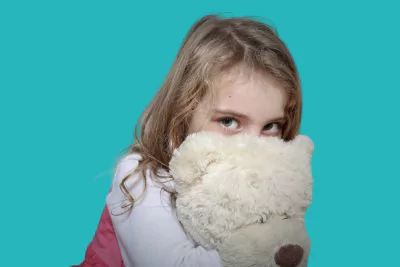Post-traumatic stress disorder (PTSD) is a psychological disorder that may affect children after they experience a traumatic event. It directly impacts their daily lives.
What is PTSD?
It is a psychological condition that develops after exposure to a traumatic situation, causing persistent fear and anxiety, often accompanied by recurring flashbacks.
Causes of PTSD
This condition arises as a result of exposure to highly impactful situations such as:
- Traffic accidents.
- Natural disasters.
- Domestic violence.
- Loss of a parent.
- Physical or psychological abuse.
Symptoms of PTSD in children

Symptoms appear in a variety of ways and affect the child's behavior. The most prominent of these are:
- Recurring nightmares.
- Flashbacks of traumatic events.
- Sudden panic attacks or fear.
- Isolation from others.
- Difficulty sleeping.
Complications of PTSD
If left untreated, the disorder may lead to additional problems such as:
- Depression.
- Poor academic achievement.
- Aggressive behavior.
- Social Relationship Problems.
Diagnosis of Post-Traumatic Stress Disorder in Children
Diagnosis is based on an assessment of the child's psychological state, including:
- Clinical interview with a psychiatrist.
- Child-specific questionnaires.
- Observation of symptoms by parents and teachers.
Methods of Treating PTSD in Children

Multifaceted treatment to help the child recover, such as:
- Cognitive behavioral therapy.
- Play therapy.
- Medication when needed.
- Ongoing family support.
The family's role in supporting the child
Parents play a pivotal role in recovery by:
- Providing a safe environment.
- Listening to the child's feelings.
- Encouraging the child to express what they are going through.
- Committing to psychotherapy sessions.
Prevention of PTSD
Not all trauma can be prevented, but its effects can be reduced through:
- Early intervention after incidents.
- Providing immediate psychological support.
- Monitoring the child's behavior after traumatic events.
How to Cope with Life After Trauma
Helps children regain balance through:
- Positive activities.
- Exercise.
- Building supportive friendships.
- Developing coping skills.
Summary of Post-Traumatic Stress Disorder in Children and Its Causes
Post-traumatic stress disorder (PTSD) in children is a serious psychological condition that affects their daily lives. Early intervention with psychotherapy and family support helps improve their condition and return them to a normal life.